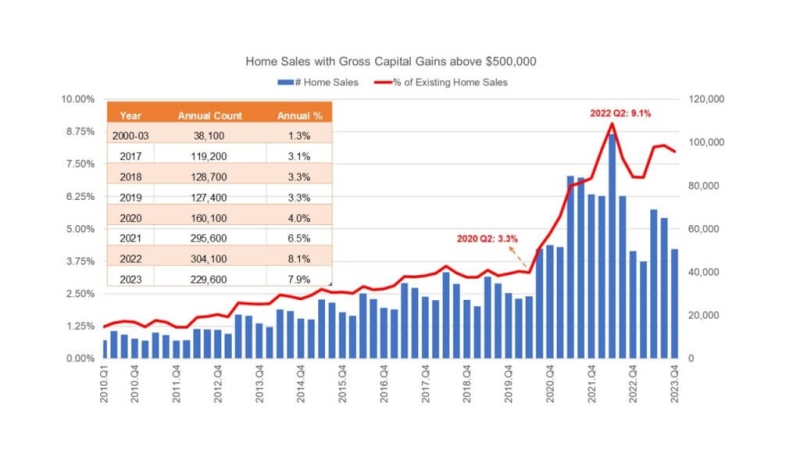Advertisement
Freddie Mac PMMS: Long-term mortgage rates down for third consecutive week
MBA's Kittle testifies before Senate Judiciary CommitteeMortgagePress.comMBA, David Kittle, Vision Mortgage Capital, Senate Committee on the Judiciary, Helping Families Save Their Homes: The Role of Bankruptcy Law
David G. Kittle, CMB, chairman of the Mortgage Bankers
Association and executive vice president of Vision Mortgage Capital
in Louisville, Ky. testified before the Senate Committee on the
Judiciary at hearing titled, "Helping Families Save Their Homes:
The Role of Bankruptcy Law." In his testimony, Mr. Kittle explained
why a proposal to allow bankruptcy judges to unilaterally modify
mortgage loans on primary residences would restrict credit and
increase costs on all borrowers going forward.
Below is Mr. Kittle's oral testimony, as prepared for
delivery.
"Mr. Chairman, my name is David Kittle. I am a Certified
Mortgage Banker and have thirty-one years of experience in the
field. I have been working with customers, banks, and every part of
the mortgage industry during this time. While I am also chairman of
the Mortgage Bankers Association, I would like to speak to you from
the perspective of a lender who is still in contact with
consumers.
Mr. Chairman, we all agree on the same goals. We all want to
help consumers by stabilizing the market. We want to help families
stay in their homes and we want to make sure that the market
excesses we saw earlier in this decade do not return. We all agree
on that.
However, we disagree on the notion that bankruptcy would
help our nation's consumers. We should be working on efforts to
keep people out of the bankruptcy courts, rather than pushing
people toward them. Let me give you three reasons why bankruptcy is
harmful to consumers.
First, no one should make filing for bankruptcy appear
attractive. There are real and severe consequences for consumers
who declare bankruptcy. Bankruptcy stays on a credit report for
seven to ten years. It makes it very difficult to acquire future
credit for a new home or car. It can stand in the way of getting
insurance. It can make it harder to get a new job or even to rent a
home or an apartment.
Two-thirds of those people who file for bankruptcy are
unable to fulfill the terms of their repayments plans. Two thirds.
In other words, two-thirds of those who file will still lose their
home, and still have the bankruptcy on their record.
Second, changing the law will force lenders to impose
tougher standards on people trying to get a mortgage. Cramdown
legislation would add new risks to the calculation lenders make in
setting prices. For the first time, lenders will have to pay more
attention to markets with the most volatility and those with higher
risks, such as rural areas, inner cities and new subdivisions,
where history shows the greatest fluctuation of home values. This
could even lead to a new era of redlining.
Lenders would be forced to demand larger down payments and
raise interest rates to balance the risk from judges who could
change the mortgage contract and cause lenders or investors to
suffer an economic loss.
Third, as you know, our financial markets are incredibly
fragile right now. Cramdown legislation will only add more
instability. The only option for many low-income borrowers today is
to get an FHA-insured loan, where the government minimizes the risk
to the lender of making a low-down payment loan. Cramdown
legislation would make it harder for borrowers to get an FHA loan,
because lenders would face the possibility that FHA insurance would
not cover the loss from a principal reduction. The same is true for
VA lending. In effect, Congress would end the only meaningful
lending option currently available to most low-income
borrowers--almost overnight.
Mr. Chairman, throughout this debate, I have heard again and
again about why bankruptcy laws should be changed, the idea that
rich people with vacation homes get cramdown protection and that
the middle class is somehow being cheated out of this
protection.
Let me clarify how current law works. If someone in
bankruptcy were to have a four hundred thousand dollar mortgage on
a vacation property and the judge were to reduce that to three
hundred and fifty thousand dollars, the debtor would be required to
pay off the entire three hundred and fifty thousand dollars in
equal monthly payments during the three-to-five year repayment
plan, not over the course of 30 or even 40 years. More likely, the
judge would force the debtor to sell the vacation home.
Vacation home customers pay for this added risk in four
ways:
• Significantly higher downpayments;
• Higher interest rates;
• Higher origination fees; and
• Shorter, more expensive loan terms.
Future homebuyers can expect to see similar treatment if
Congress passes cramdown legislation.
In 1978, this Committee passed a broad re-write of the
bankruptcy code. It specifically and purposefully excluded primary
residences from cramdown. Congress did so to keep the costs of
primary residence mortgages low. This is not a loophole. This was
an important effort by Congress to encourage homeownership, which
even today, is the best way for American families to build, grow
and maintain wealth.
Congress should continue to help consumers by keeping
mortgage costs low. Passing cramdown legislation during this credit
crunch will further destabilize the mortgage market and it will not
help significant numbers of families to stay in their
homes.
We at the Mortgage Bankers Association look forward to
continuing to work with Congress, our regulators and the new
Administration to find new, creative and productive ways to address
the current crisis."
For more information, visit www.mortgagebankers.org.
About the author





